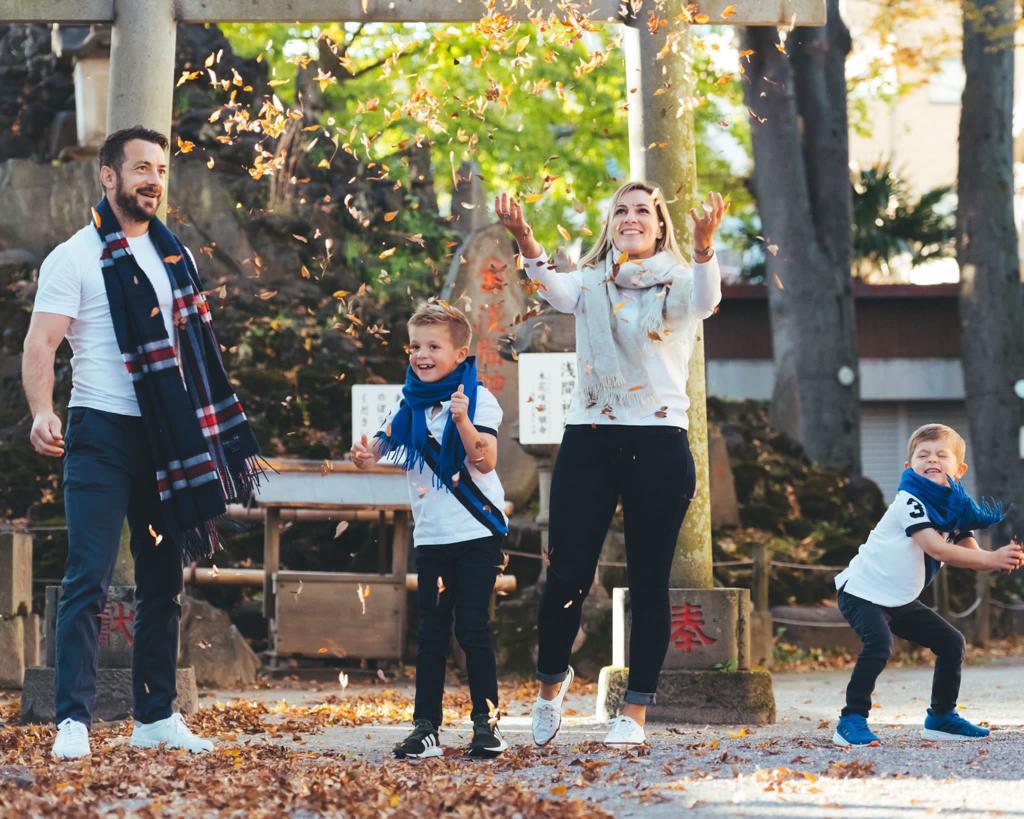
Sinclair Paterson walks and talks with Greig Laidlaw – two family-focused men rooted firmly in Scottish Borders identity; both fiercely passionate individuals, leaders in their field who share a drive for excellence and who have dedicated themselves to get to the top of their profession; yet two humble men woven into the fabric of their community; men who are never happier when taking time out to spend with those that support them the most – their friends and family.
“I’ve known Greig since he was a young lad. During the off-season I asked if he would be keen to get together to explore how we could learn from each other. I’m a big believer in tapping into what makes other people successful and seeing if that’s something we can take forward into Kinalba. I want to see what lessons can be drawn from people who have reached the very top of their profession. In particular, what it takes to be a leader and the psychology that’s needed to get to the top.”
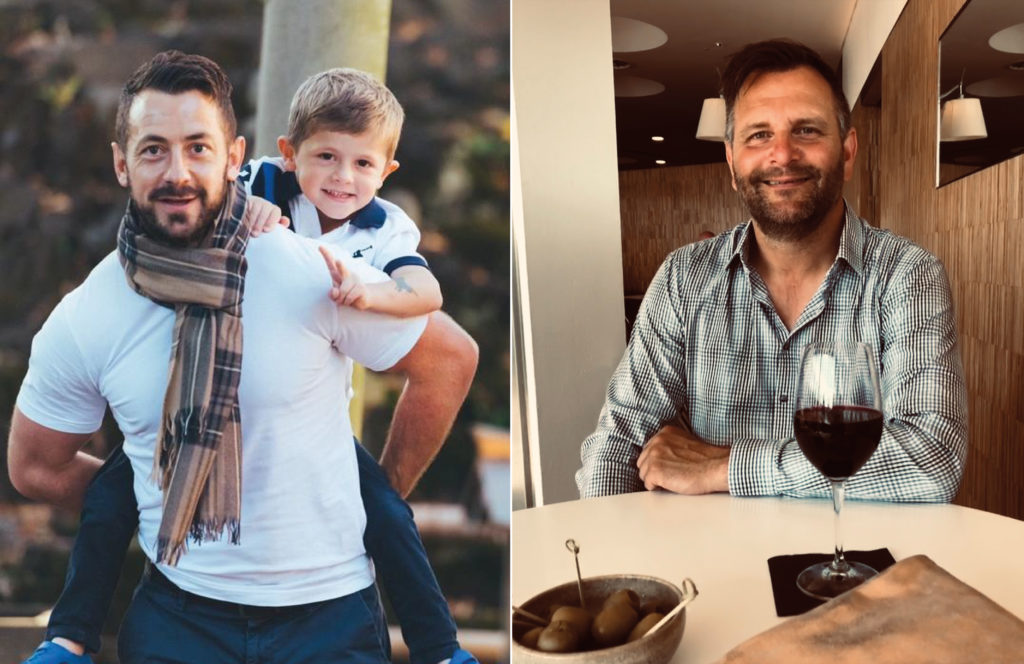
Photo Credit: ENO
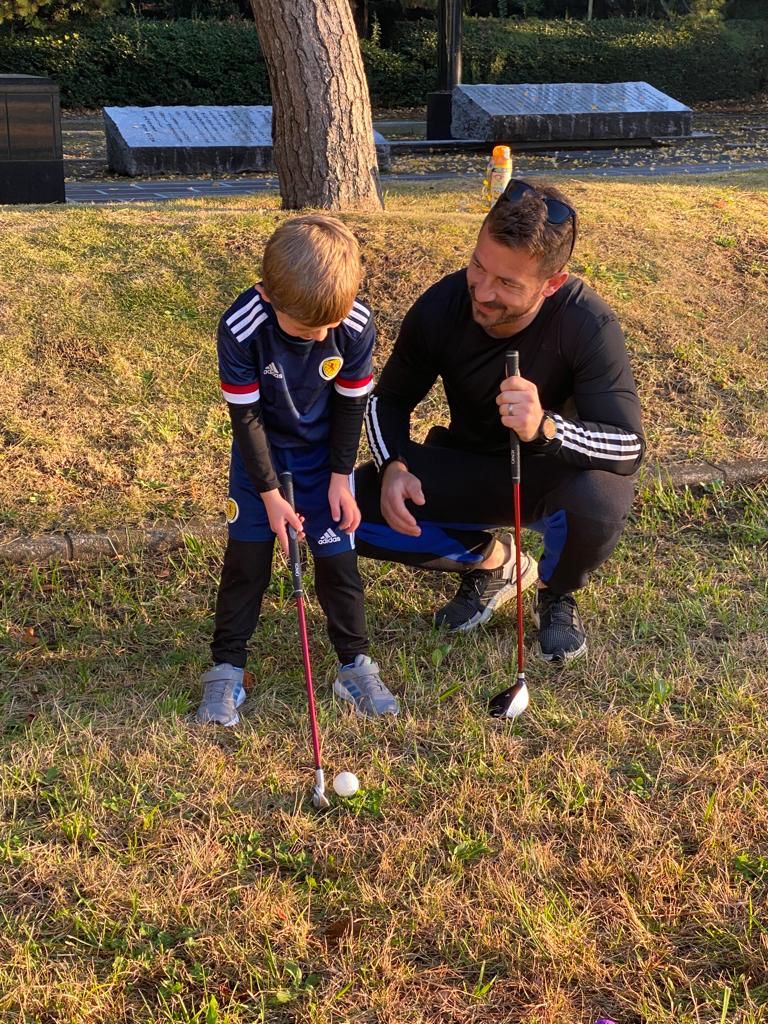
I believe in my line of work you can get better every day. I’m always chasing excellence. You probably never arrive there but every day I believe I can make huge improvements. I don’t think it’s something you’re born with; you take the talent you have and develop it. I’m very competitive and the challenge is within yourself to be the best you can be; it’s a sense of achievement. It builds up over time but essentially, the challenge is always the same, it’s with yourself. And that comes down to your mindset. I remember missing out on selection for the Rugby World Cup in 2011 and I was hugely disappointed so I took this as a challenge to never be in that situation again. I set to work on pushing my way into the Scotland team and through sheer determination I managed to do that.
In terms of mental challenges, the one that always creeps in, is self-doubt. You have to come up with a coping mechanism to make sure those thoughts don’t enter your mind when you have to perform at your best. I’ve always tried to put myself under pressure during training so I would go into games full of confidence and keeping self-doubt at bay.
During the pursuit for excellence and being the best you can be, you’re still allowed to have fun. In fact, it’s important to be able to change it up and keep you mind fresh. I love getting out on the golf course to let off some steam or get away from rugby a little bit. I tend to do a lot of my thinking or planning when I’m on the course.
I’m always trying to learn. I’m so committed to rugby that it can get in the way of doing other things. It comes down to time management and trying to find the time. But I do try to upskill myself because you never know what’s around the corner and just trying to be ready for the next step and developing as a person.
Part of what drove me to England, then to France, and now Japan was curiosity and a desire to learn. Experiencing different cultures, people, languages, it’s an awesome opportunity and a great way to learn along the way. I’m a huge believer that it will be beneficial for our kids. My family are on a journey with me as well. The way I see it, I’m giving life experience to my children.
As a youngster myself, my parents had a huge influence on me and I truly believe they really helped shape me into the person I have become today. I remember how hard they worked, and the sacrifices they made. They taught my sister and I about having respect and discipline. This really helped me when I left School aged 16 to work as a joiner – having traits such as good timekeeping, respect for others, and taking pride in my work.
I think the desire to ‘actively learn’ and ‘passively learn’ through curiosity is a means to developing myself as a person. It’s part of my commitment to self-improvement and dedication to the game. For all sports lovers, if you look at the ‘Last Dance’ with Michael Jordan you see how committed he was. You knew he was the best basketball player in history but until you watched that documentary, you never realised what was behind the scenes and how he actually got there. People look at sportspeople and think that must be brilliant but it’s the sacrifice that goes on behind the scenes.
Sacrifice is a must in my world if you want to become the best version of yourself. Training and preparation must always come first. The sacrifice means not going out at weekends when maybe all your mates are, and being willing to miss events that can get in the way of your performance.

Photo credit: © Craig Watson
You come across many coaches in your career and you perhaps only connect with a few. For me it was Vern Cotter. He had the same competitiveness as me and he was huge on ‘teamship’, and doing the right thing for the team. Ironically, he was a New Zealander but he reminded me what it was to play for Scotland and what it was all about – pulling on the jersey, playing with your mates and putting your bodies on the line. He hit home with my own competitive side. It reminded me of watching Scotland as a youngster – seeing them get stuck in and winning a few games. I was at the Calcutta match in 1999 with my dad when Duncan Hodge had the game of his life and scored all 19 points to win the match and prevent England from winning the Grand Slam – and us from being bottom of the table. I remember of the outpouring of emotion from the team and the crowd – and what it meant to everyone. The fire in the belly, the passion, goosebumps on my arm, the swell of collective pride. It was electric. Vern Cotter brought those emotions back. His leadership really struck a chord with me.
Keeping calm under pressure seems to sit ‘easyish’ with me but I have a fiery side as well. I’ve learned when to separate the two and when to bring different sides out. With leadership and making decisions, you have to have a clear mind. As Scotland captain, if I look calm then the rest of the team sees that and it filters through to the rest of the team. It’s a process. I learned to plan my week out in advance of the game, what I would say to players before kick-off so when I turned up I could just act as another player as I was already prepared and ready for different scenarios.
It’s easier the older you get to not simply wear your heart on your sleeve when calmness is required. You need to control it. When I was younger, I would have been down peoples’ throats a bit. Ultimately, you want high standards, and just want what’s best for the team. You need to take that big deep breath before you let anything out and think ‘what’s the best way here?’. As a captain, it’s on you to come up with the right answer.
In rugby, everybody thinks ‘captain this’ and ‘captain that’ but everyone’s job has the same importance. Everyone needs to do their job well. Empowerment is massive for me. When I was younger and coming through it was the old school mentality. There was always just the one person in charge. Everybody else had to be quiet. Today, it’s very much moved away from that – and for the better. When everyone is empowered, they have a sense of pride, rather than fear. It’s really important for me and something I have learned over time.
Here in Japan the players probably lack quite a bit of self-confidence. It’s the way their culture is and the way they are brought up, to follow the letter of the law. I’m trying to help them with thinking on their feet, understanding the developing and moving picture that is the rugby game, and the need to work it out on the run. It’s a challenge that I’m really enjoying. They respect my opinion; respect is a big part of their culture.
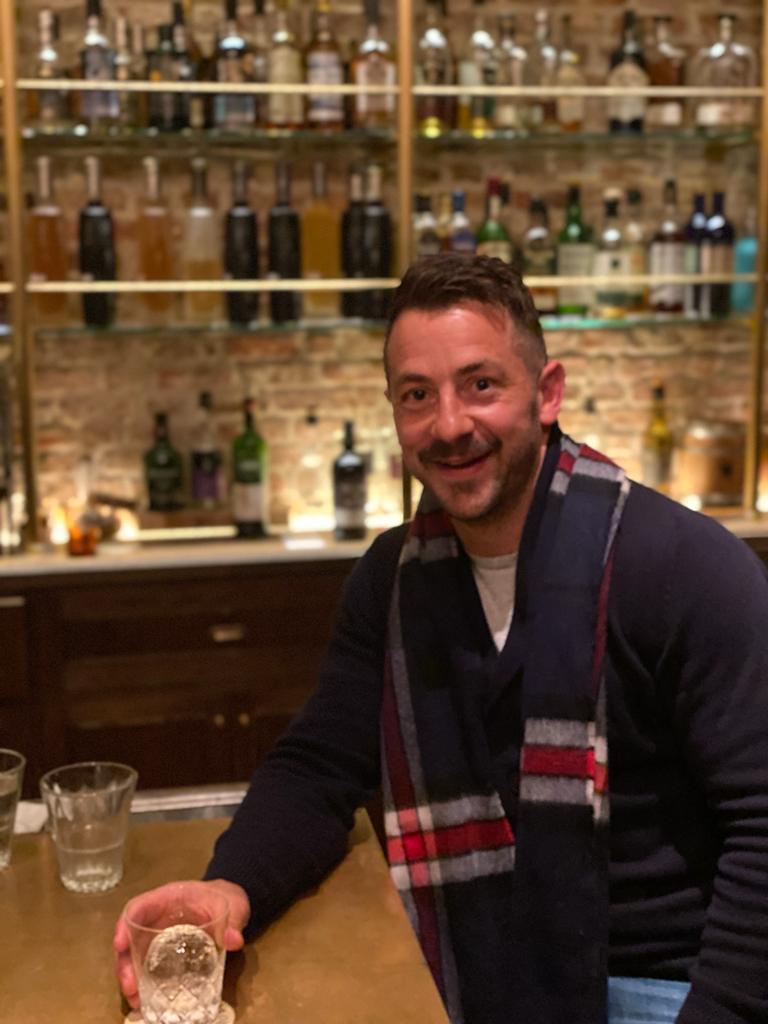
I’d describe myself as loyal, committed and motivated. As in every walk of life there are going to be people along the way that don’t share your values and ethics, and you learn some hard lessons along the way. If other people were to describe me, hopefully they would say I’m a kind person. I always try and make sure that I see everyone when back home. The Laidlaw clan has always been a close one so that is definitely one of the more difficult things about being overseas.
I don’t take myself too seriously. Something I’ve tried to do is enjoy my rugby, the friendship in the teams, the laughs, the memories. I think you have to try and enjoy it along the way and make the most of it.
I think Scottishness travels well. It’s amazing just by telling people that you’re Scottish they seem to warm to you a little bit. Wherever you go people seem to have a connection to Scotland. People on the outside from the rest of the world see Scotland as a high-quality place with good people. The folk here in Japan all seem to love Scotland and I doubt too many have actually been. I came to realise pretty quickly about the historical links between the two countries which goes back centuries and they’re still strong today. Everyone in Japan wants to talk whisky, they all drink high balls (whisky and soda) – it’s massive. The Japanese also have a taste for luxury fashion, in particular Scottish Cashmere. I’m sure they’re going to love the quality of Kinalba.
The whole rock star thing, growing up in Scotland and Jedburgh – you can’t do it. People are humble and hard working. I had a living role model in my Uncle Roy (Roy Laidlaw, capped for Scotland and British & Irish Lions) who was a huge inspiration to me. In the press I never talked about him but he achieved so much in his career and he’s the humblest man you’ll ever meet. He gave everyone time and would not walk past anyone in the street. Closer to home, my Mum always had very good discipline, keeping me in check and being grounded. This has helped my performance, increased my self-confidence and understanding of who I am as a player.
I’m a huge sporting fan. Tiger Woods really inspired me because he was in his golden era when I was coming through. I’m a golf fan and it was inspirational to see somebody like that take the world by storm and change the whole of golf and sport. The ability to go and dominate a sport for so long is awesome.
I’d like to see a much kinder world. There is all sorts of hate and bad people going about.
Climate change worries me as well. We may not be affected too much in our generation but our kids and our kids’ kids, they could pay the price for it. We all need to do our little bit and leave the world in as good a place as we can do. Hopefully the younger generations can enjoy what we’ve been able to do, see great places, and meet great people.
When you wander the world, being away from home, you come into new environments but you’re not sure who to trust sometimes. I’m somebody that likes to have a tight circle of friends. It’s great to have people I can call on from the rugby world to talk a few things through. People who have been there, done that and understand what it is like are a real help to me. People like Jason White or Chris Paterson – I can pick up the phone to those guys and chat things through.
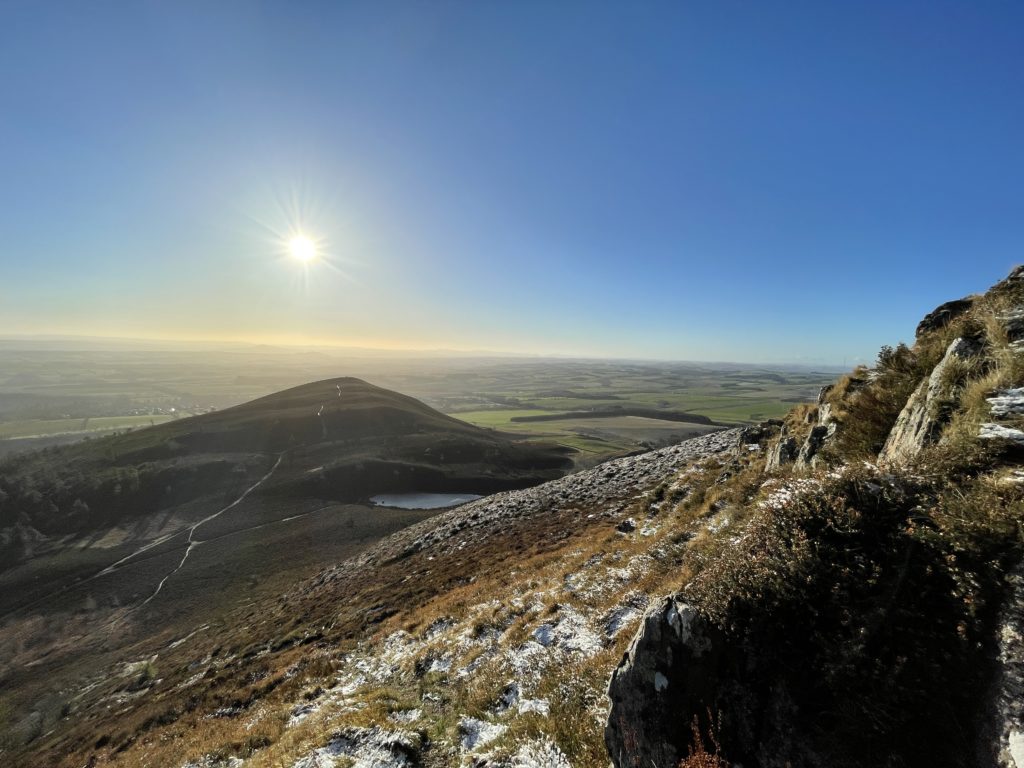
I think it’s massively important to get out and about. I enjoy being outdoors and just taking it all in. Being in different places across the world and just going for a wander is all part of decompressing. Getting out is when I have that small chance to switch off. This is also when I get to see the wife and kids being happy. These are the moments that are really important.
We’ve been very fortunate to just be able to take a walk through the various places we have lived, especially during my time in France which was awesome. Bordeaux really stands out for me. I would just amble about the middle of Bordeaux, taking in the culture and the architecture. A little further south you have Biarritz and Bayonne. We used to love going for a little stroll along the beach drinking our coffee. It’s all part of the experience.
Edinburgh is such a unique city in many ways with the castle in the middle, the history, and the architecture. That’s a city I have enjoyed roaming around in but I’m drawn to going for walks in the countryside, like the Scottish Borders. I was really lucky to have that in Jedburgh, being so close to nature.
In Japan everyone has a bike. We’ve embraced the culture, we’ve all got a bike with a basket, just don’t tell anyone. We’re very lucky where we are – we’re based in Tokyo Bay and five minutes down the road is the sea front. Everything is set up for bikes with paths. Japan does get cold so it’s great having Kinalba cashmere scarves when the temperatures drop. Might as well look good when out and about!
Stepping away and having a new challenge brings excitement, freshness – but coming to Japan, what an opportunity to have a great life experience. You’re only going to get these opportunities once in your lifetime. That’s how I look at it – come and have fun, put myself out there.

Dressing well is important to me. If you look professional and well turned out it makes for a good impression. Kinalba‘s styling impresses me. It’s smart and it’s the best cashmere in the world. It’s pure luxury and the feel of wearing it; all that really adds up. The history of it as well, and having the connection to the past with rugby through Sinclair’s Dad appeals to me. What’s really impressed me most though is that Kinalba is a family brand with strong core values, and produces unbelievable product quality.”
As Sinclair comes from the Scottish Borders, and also from a rugby family (Sinclair’s Dad and cousin Chris Paterson both played for Scotland), it was inevitable that we would know each other. He was more than a decent player himself but he’s done brilliantly in the luxury textile business. I’ve been very impressed with Kinalba and I’m a real advocate of their cashmere accessories. When Sinclair suggested meeting up to discuss leadership parallels in sport and business, I jumped at the chance. I suppose I’m looking towards business opportunities and learning as much as I can. I’m looking to see what comes next when my playing days are behind me.”
I’ve always had a passion for textiles as well as a passion for rugby. But it was my career that was most important to me at the time of choosing which path to take. It’s all about what you want to do as a person. Much of my drive comes from family, and making them proud. It also comes from the community, colleagues, and team members. I’ve been determined to drive and develop the next generation, whether that’s the next rugby player or the next textile expert.
Everybody in life is trying to crack the work / life balance and get that just right. Looking back at my family history they have always been really hard workers which drives me on to continue that and to be successful. You have to have focus. At Kinalba we have an objective, a plan, and believe that we’re going to make it happen.
My drive comes from the life we’re trying to carve out for ourselves as a family. This is where the balance comes in, where I can take a step back and reflect and enjoy the moment – taking time to spend with my wife, Debbie, and the kids. I think about my Mum who sacrificed a lot bringing up four kids when my Dad was either away working or with rugby. I’m determined that we all enjoy our time together as a family. You’ve got to be able to take a step back but the drive is laying those foundations in the first place to allow us to do that.
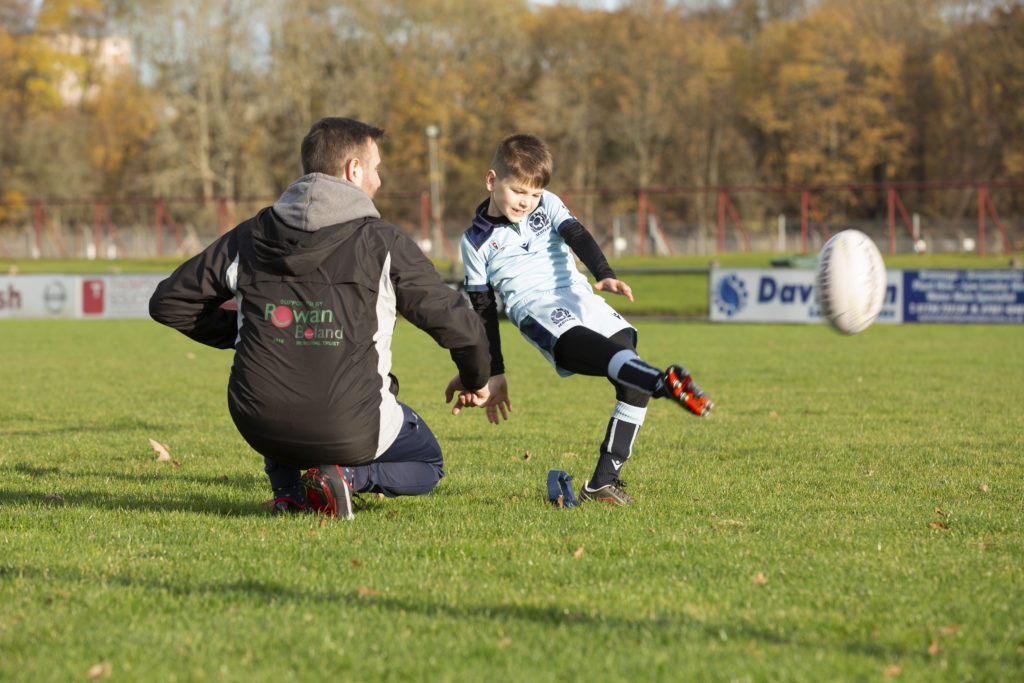
I left Galashiels when I was 23. I never had much confidence. I wasn’t able to get up and speak in front of people. That’s something I learned at Johnstons of Elgin. As I was promoted through the ranks you had to learn quickly and think on your feet.
I was very lucky in terms of who took me under their wing. The late James Sugden was the leading world expert in cashmere and textiles and he mentored me. I appreciated that so much. When you’ve had someone like that bringing you through, I was always conscious I would like to do the same for the next person, or people, or even teams.
There’s not a week that goes by that I don’t think about him. If there’s a problem put in front of me, I think what would James do in this situation? He’s still guiding me. He was inspirational. He was world-renowned to the point that when we travelled to China and Outer Mongolia there would be film crews awaiting him at the airport – he was so famous over there. I felt very fortunate to be travelling the world with him and working on business strategies.
James had an entrepreneurial style, like I think I have. What James did was he trusted you to make decisions yourself. We made mistakes but as long as you learned from them then that’s fine. That frees you up to drive a business forward by removing the fear factor or paralysis by analysis. That’s how I learnt so fast. Now everything can be done by committee which slows things down a lot and decisions are not necessarily better in the longer term. You have to empower people. Like in rugby, if someone is out of position on the pitch or not doing what they’re supposed to be doing then everyone suffers. It’s the same in business. If I can keep empowering people in the industry then it can only be good for the future of Scottish made textiles.
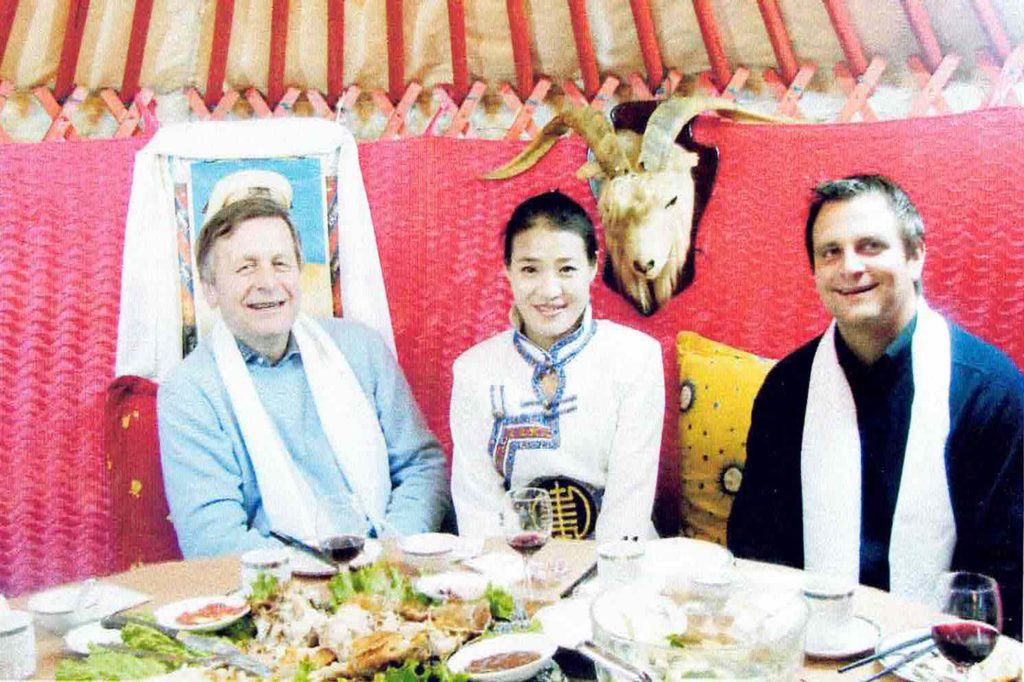
James Sugden with Sinclair Paterson on one of their trips to Inner Mongolia.
My Grandfather always said to me ‘it’s nice to be important but it’s more important to be nice.’ That’s stuck in my mind ever since I was a boy. Particularly in business when you’re constantly networking and meeting people, it’s crucial to give everyone time, not just to the ones you think might help get you on in life.
James Sugden knew the name of everyone in the company and what their kids names where, what school they went to and where they went on holidays. He used to walk around the mill each morning taking time to talk to everyone. These are the types of things that stick in your mind and you to try to learn from that and take it on yourself.
I’ve spent time in the back of beyond in the Far East, where people don’t know where Scotland is. But everyone recognises a smile on the face, even if you don’t know the language and are struggling to communicate.
Alongside being friendly, being frank, honest and encouraging others to express their views is crucial in leadership. It’s also important to be assertive in all aspects of life but always in a fair way. I do think you should treat people how you would like to be treated yourself. If you can get all those things together and working then you’ve got half a chance.
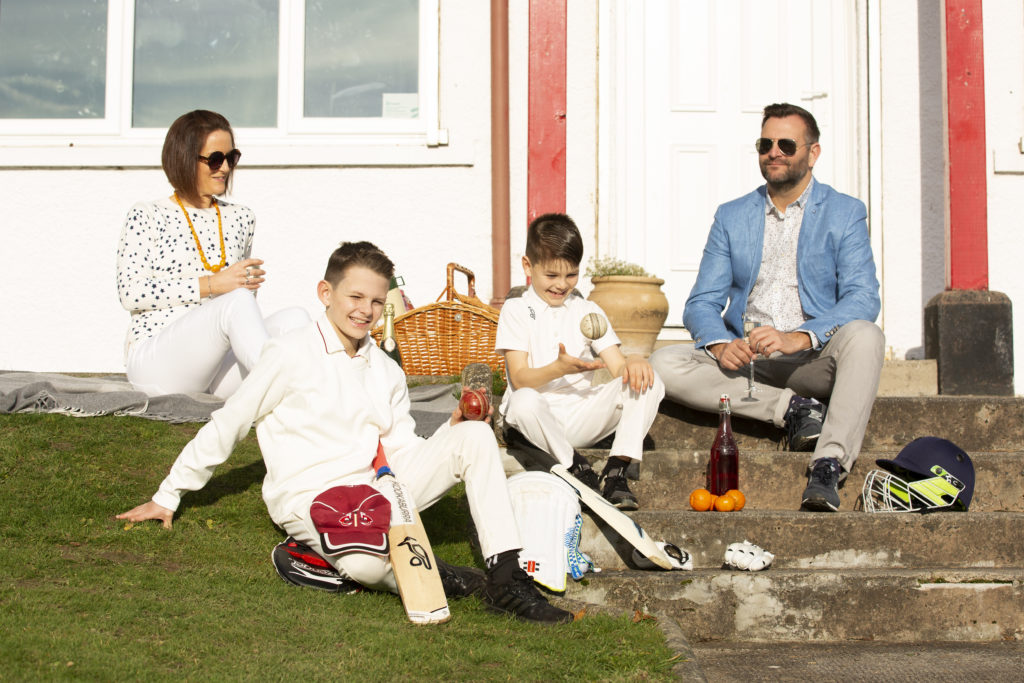
Kinalba rule number 1 was to enjoy ourselves, especially having previously managed over 700 people where the fun had slipped away. I want to make it worthwhile getting up in the morning and to build a strong business.
We have quite a small team at the moment. It’s a family business. For me, like rugby, you‘ve got to ensure everyone is playing in the right position. I see myself as a leader but mainly on the manufacturing side and supply chain management. The business is changing in terms of what the world requires today, it needs to be agile and able to react quickly. My main role as a leader is to make sure that happens.
I’m constantly thinking about environmental issues. So much needs to be done and it needs to be done right now. We need to be Carbon neutral by 2050 and getting our carbon footprint right down.
As a manufacturer I’ve always been interested in luxury brands and looking to see how they approach environmental issues. The luxury brands are the ones that always stood out for me. I think slow fashion is far more important than this throw-away fast fashion which is a big worry as far as the environment is concerned. There is so much waste and it’s really important to me, far more needs to be done. Producing luxury garments of the very best quality, something that’s going to last, our customers having a really special piece – these are the principles that we’ve tried to build Kinalba around.
The world is changing, the buyer is predominantly online. Every single piece of information is available on brands for the customer to see. It’s so vital to get the environmental approach right. I pride myself on creating luxurious products that are environmentally sound. We are part of the Sustainable Fibre Alliance (SFA) which works closely with raw material growers in Inner Mongolia. We work with them on how they manage their goats and their grasslands. A lot of the big global brands are now getting together as part of SFA to make sure everything is low impact, minimise environmental impact, safeguard herder livelihoods and meet high animal welfare standards.
We look at logistics, traceability and following the fibre all the way through the supply chain until its finished up in our garments. All that information is so important for the customer. We have to convey this story into selling our products so that people are aware that they’re buying more than just a product.
I loved Beijing. It’s a completely different culture, and the food was fantastic. It’s just so different and you have to slow down and take it all in. Beijing was always a highlight of my travels and you never got bored of the history, the heritage and the excitement.
The Scottish Borders has everything when it comes to walking – countryside hill walks, river walks, and you’re not too far from stunning beaches on the East Coast. When we do get the opportunity it’s great to get to the coast and get some sea air. I think you have to get out and blow away the cobwebs.
We try and get out as often as we can to walk up into the hills behind our home in Galashiels. It’s a steep walk but the views at the top are amazing. Once you’re about a mile in, you start to absorb what’s around you, to relax and really enjoy it and think how lucky we are. I think that’s when you start to have more meaningful conversations. It’s important to get that time as often as possible. A time when you open up a little bit more and get perspective from different people. “
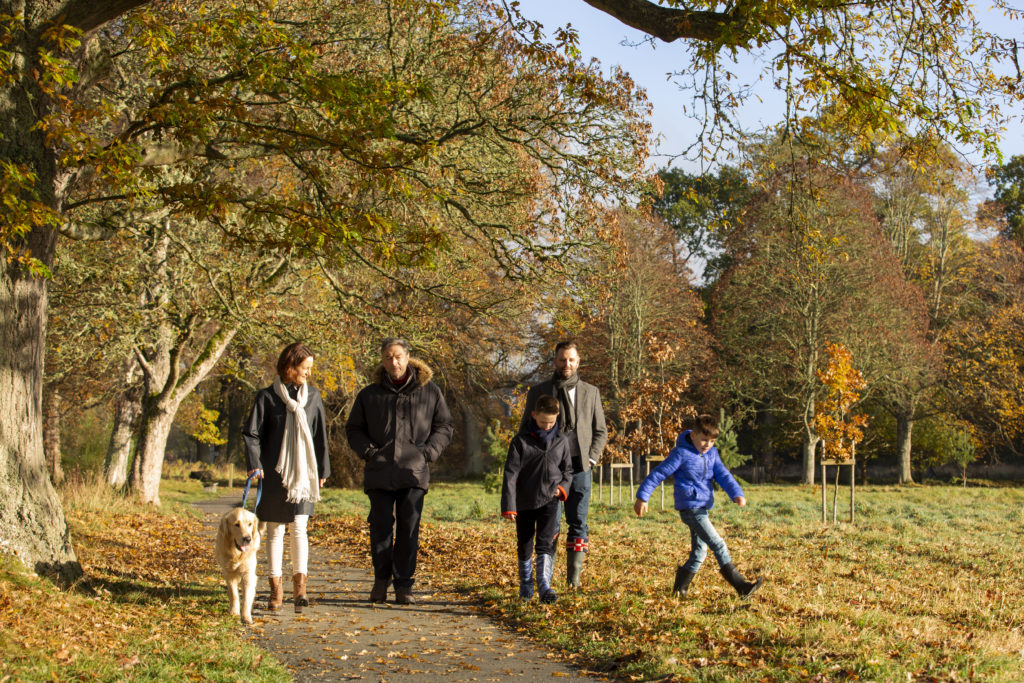
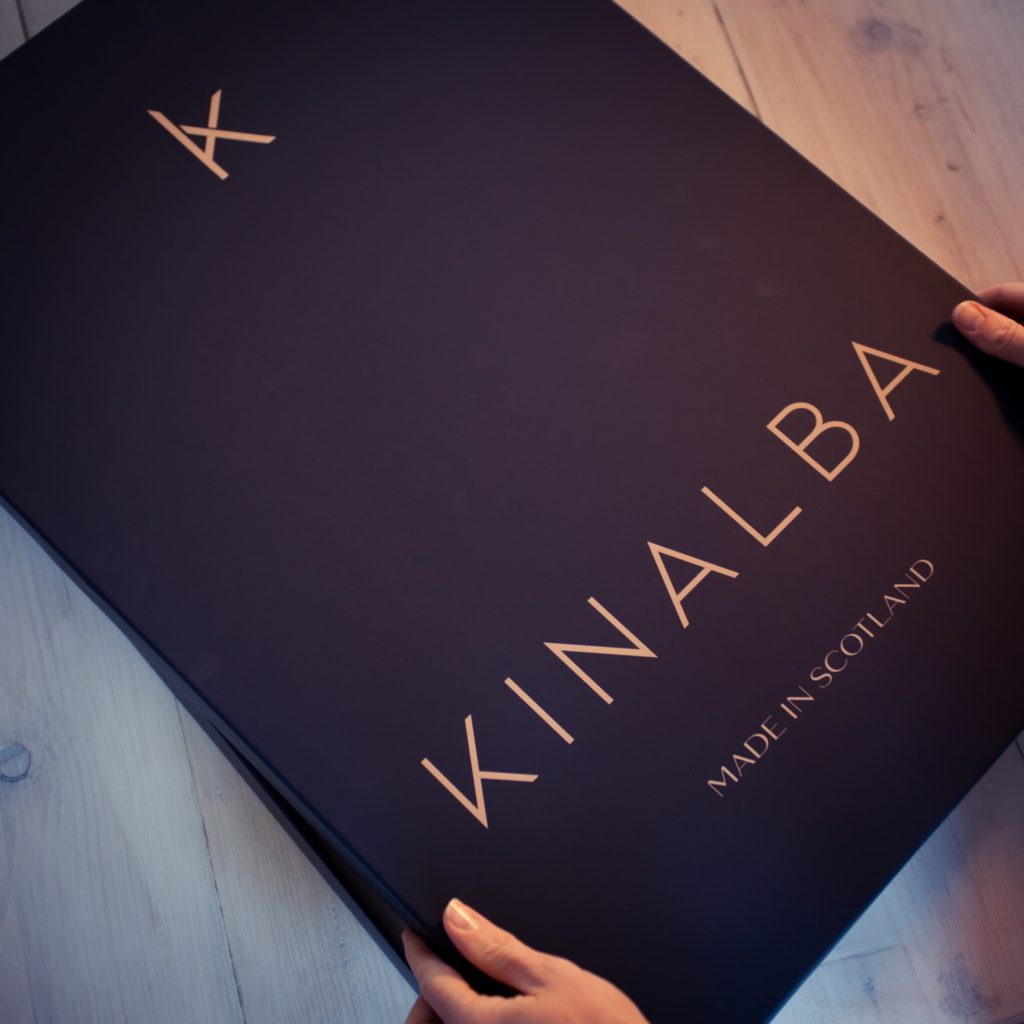
Have your luxurious Kinalba product gift wrapped in elegant, sustainable packaging. Our gift to you is that it’s completely free of charge – as is delivery. We will handwrite your message for that personal touch. You can include this in the check out process before payment. Thank you for shopping with Kinalba x
Terms

Have your luxurious Kinalba product gift wrapped in elegant, sustainable packaging. Our gift to you is that it’s completely free of charge – as is delivery. We will handwrite your message for that personal touch. You can include this in the check out process before payment. Thank you for shopping with Kinalba x
Terms